#Şehzade Osman
Text



This blue and golden kaftan was first worn by Şehzade Mustafa in the fourteenth episode of the fourth season of Magnificent Century.
With the sleeves cut off, the kaftan appears again on Şehzade Osman (later Sultan Osman II) in the twenty-fourth episode of the first season of Magnificent Century: Kösem. The sleeves were shortened once again before it was used on Şehzade Kasım in the second episode of the second season.
#Muhteşem Yüzyıl#Muhteşem Yüzyıl: Kösem#Magnificent Century#Magnificent Century Kösem#Magnificent Century Kosem#period drama#costume drama#historical drama#Şehzade Mustafa#Sehzade Mustafa#Şehzade Mustafa (Son of Mahidevran)#Osman II#Şehzade Osman#Sehzade Osman#Şehzade Osman (Son of Mahfiruze)#Şehzade Kasım#Sehzade Kasim#reused costumes#recycled costumes
12 notes
·
View notes
Text
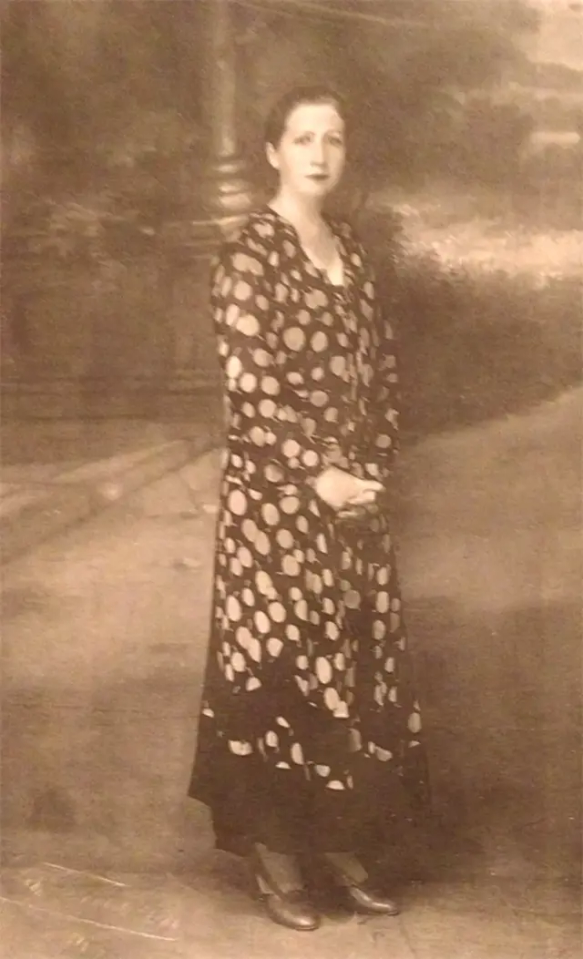
Gerçek Osmanlı Torunları...
Babası Kato Davut bey, Annesi Ayşe Hanım'dır. 24 Nisan 1911 tarihinde Sultan Vahdettin ile evlendi. 1912 yılında Şehzade Mehmed Ertuğrul Efendi'yi doğurmuştur. San Remo'da Vahdettin'e eşlik etti. 1929 yılında Vahdettin'in vefatından sonra İskenderiye'ye yerleşerek burada bir evlilik daha yaptı. 1948 yılında Türkiye'ye döndü. 1950 yılında Çengelköy'de vefat etti. Zarif ve şık bir hanımefendi olarak biliniyordu
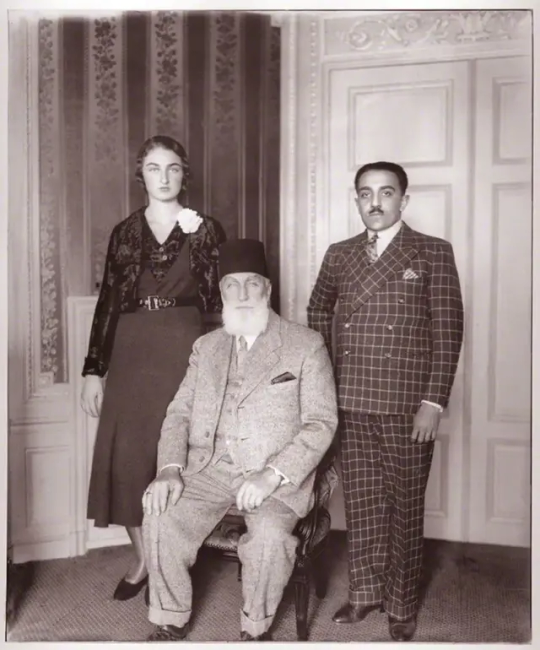
Fotoğraf 1931 yılında Fransa'da çekildi. Son Halife'nin kızının elbisesini din-i İslam'a aykırı bulmadığı gözüküyor. Ayrıca kendisinin şıklığı da çağdaş daireye gösterdiği adaptasyonun ipuçlarını veriyor. Yazdığı 35 sayfalık bir makalede Osmanlı Padişahlarını tahlil etmiş, İkinci Bayezid'in içkiye düşkünlüğü yüzünden sefil, İkinci Selim'in 'sefih bir sarhoş' olduğunu ifade etmiştir. Abdülmecid Üçüncü Murad ve Üçüncü Mehmed'den 'Osmanlı Devleti'nin amansız cellâdı' olarak bahsederken, Dördüncü Murad için ise 'geleceğin en büyük hükümdarı olmaya namzet iken içtiği rakının kurbanı olmuş; devletin talihini ve geleceğini İbrahim gibi akıl noksanı ve anlayıştan mahrum bir şahsa terk ederek dünyadan çekilmişti' demektedir. Üçüncü Ahmed'in sefahat tarafından ele geçirildiğini söyleyen Halife, Sultan Abdülmecid'in 'içki müptelalığı yüzünden hayatını kaybettiğini' belirtecektir.

Sürgün yıllarında çekilen bu fotoğrafta Ömer Faruk Efendi, Sabiha Sultan ile birlikte görülüyor.

1923 yılında doğan Hanzade Sultan, son Osmanlı padişahı Sultan Vahdettin ve son halife Abdülmecit Efendi’nin torunudur. Mısır Hanedanı mensuplarından Mehmet Ali İbrahim ile evlenen Sultan, dünya sosyetesinin en güzel kadınlarından birisi olarak ün yapmıştır. Fotoğrafta kızı Prenses Fazile ile birlikte.
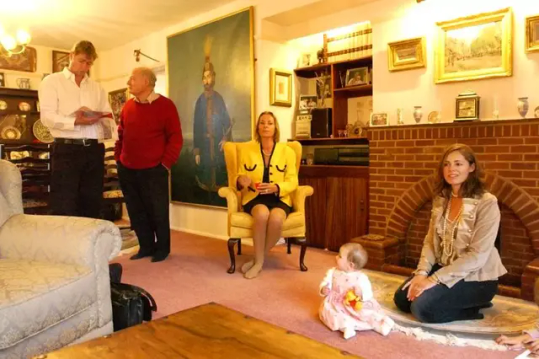
Arkada yer alan portredeki Padişah, 'Tanzimatçı' ve 'Gazi' olarak bilinen Abdülmecid'dir. 1839'dan 1861'e kadar hükmetti. 3 Kasım 1839'da Osmanlı demokratikleşmesinin ilk adımı olan (Gülhane Hatt-ı Şerif-î) Tanzimât Fermânı’nı yayımladı, 18 Şubat 1856'da (Islâhat Hatt-ı Hümâyûn-u) Islâhat Fermânı’nı ilân etti.
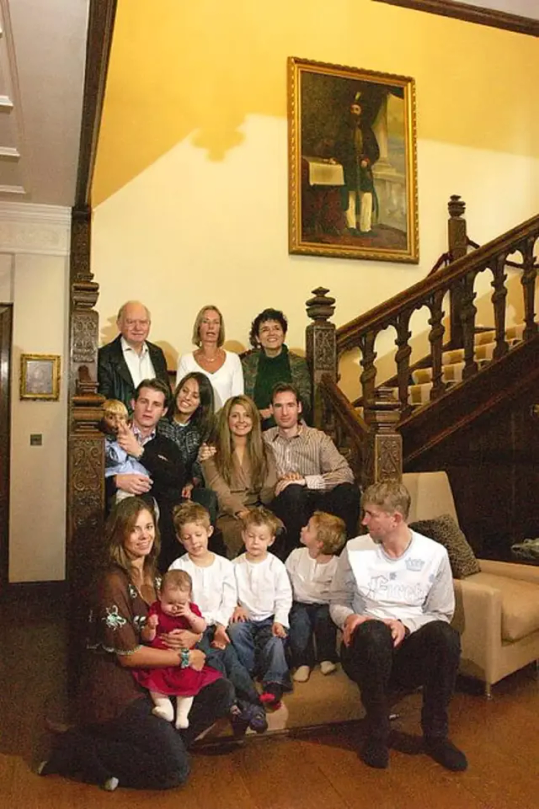
Osman Selahaddin Osmanoğlu, Osmanlı şehzadesidir. Ali Vâsıb Osmanoğlu'nun oğludur. İngiltere’de yaşayan Osmanoğlu, İstanbul’da bir ev aldı. TRT için hazırlanan ’Osmanlı Hanedan Ailesi’ belgeseline danışmanlık yaptılar.
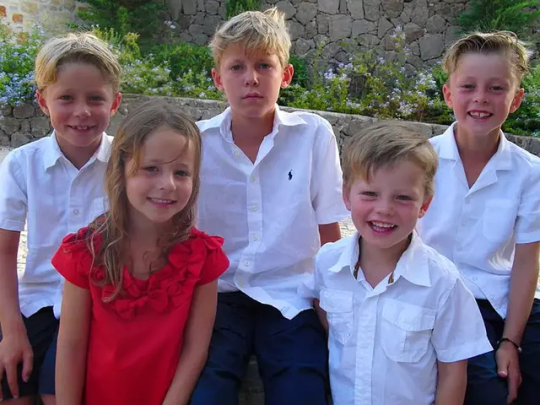
Fotoğrafta yer alanlar, Osman Selahattin Osmanoğlu'nun kızı Ayşe Gülnev Osmanoğlu'nın çocukları, son jenerasyon Osmanlılar. Soldan sağa, Prens Lysander Cengiz, Prenses Tatyana Aliye, Prens Maximillian Ali, Prens Ferdinand Ziya ve Prens Cosmo Tarık. Hepsini sevgiyle selamlıyoruz
Ve .. çakma Osmanlı torunları 😂😂😂

youtube
33 notes
·
View notes
Note
What would you have done with Huricihan in the show? Would you choose an arc that has an anti-vengeance theme? I’m very curious hear your thoughts.
Oof, this one is hard.
On the one hand, part of the reason I consider Ibrahim's children to be criminally under used within the show is that, altogether, the three of them could present as a dangerous, budding fraction all their own.
Huricihan is guaranteed a place among the upper echelons of the harem, while Esmanur can infiltrate the network of servants found there. In turn, Osman can blend in among the statesmen to make moves there.
Except...I don't really know where to go from there.
Because, here's the thing, the only child I could buy of Ibrahim's having such an idealized version of him is Esmanur, not Huricihan. The relatives who raised her would, understandably, be filled with reasons to spin a tale that set the Ottoman Empire as villains rather than Ibrahim himself.
Speaking from experience, being raised in a dysfunctional household has an effect on you. Between the bring the walls down levels of arguments their parents had and Hatice's frequent nervous breakdowns and or depressive spirals, I find it difficult to believe either Huricihan or Osman would view their parents marriage through such rose tinted, ~true love~ glasses unless it was one hell of a coping mechanism on their parts.
Not to mention, there's actually an interesting element of the "real historical" admist all this, which is a casket in Hürrem's tomb belongs to a daughter of Hatice. It's not Huricihan's since she's a fictional character created for the show, but it does read, "Hanım Sultân, daughter of Hatice Sultan who is the sister of Sultan Suleyman Khan I. Date of death: 1582."
It's a very minor detail, but, still, one that could provide a reasoning to present a different form of narrative than that in the show. Perhaps the siblings are solely won over by Hürrem after realizing the true lack of her involvement in Ibrahim's death, alongside of being forced to face the reality of their parents marriage. Realizing that Fatma (and maybe Beyhan) had, basically, raised them to be weapons in their own revenge could have them turn against their aunts to join hands with Hürrem's fraction, which could be fun.
I can say with absolute certainty that I'd completely do away with the concept of Huricihan's romance with Bayezid, let alone their marriage. The show had this strange fixation with cousin marriage, alongside of creating entirely fictional marriages overall for the şehzades. It was entirely unncessary.
(The only child of Ibrahim's that I think could realistically join a harem would be Esmanur, who I would love to see as the mother of Mehmed's one, famously beloved and influential daughter.)
14 notes
·
View notes
Text
The Most Beautiful Thing In The World Is Love. - Chapter 2

Book: Dracula A Love Story
Pairing: Mehmed x Lale / Mehmed x MC
Characters: Şehzade Mehmed, Lale Hatun, Sultan Murad,..
Important note:
In episode 5 of Dracula a love story season 4, Sultan Murad tells the story of Osman who marries Sheikh Edebali's daugher.
The names of Osman's wives were mixed up, as they refered to the Sheikh's daughter as "Malhun Hatun", when her name was "Rabia Bala Hatun".
Malhun Hatun was indeed Osman's first wife and mother to the future sultan Orhan, and Rabia Bala Hatun wed Osman later on, becoming his second wife. Together they will have only one son, Alaeddin, who will become Grand Vizir.
While I do not like discrepancy, I have decided to keep Murad's quote as it was in the game, so as not confuse my fellow players.
Still I wanted to provide good informations about Historical figures.
Chapter 2:
The past few days had been most tiresome for the troops. At first, they rejoiced at the surprise that their arrival made on the Hungarians. At loss, they didn’t have the time to gather enough supplies to withstand a siege. But then, both sides started to stall, neither wishing to engage the fight. This could soon cause a problem, as more reinforcements might arrive from Europe; and then, the Ottomans would be the ones besieged, surrounded by all parts.
These thoughts were occupying Mehmed’s spirit as he regained his tent, the second night on the field. While the servants were preparing everything for his ablutions, he continued his train of thoughts, eyeing them absentmindedly.
It was a good thing that the Hungarians suggested a duel: their victory lifted the spirit of the Ottoman troops, and now the Mehter march could be heard throughout the entire valley. This military music would always remind their enemy that the mighty Ottoman army was close, breathing down their neck, and ready to claim their victory on those lands, as they did on many other lands before. Yet something was bothering the young prince: Aslan. He had chosen him for his excellent swordman’s skills, but his father had seemed too happy about his victory.
Mehmed took out his caftan, then his shirt, letting his fingers run along the scar on his lower abdomen. ‘Yes, Aslan is a good fighter’ he thought ‘but even good fighters can let their guard down once in a while.’ He stared at the former slash wound with a thin smile, thoughts of Aslan gradually fading away to be replaced by more pleasant ones. He tried to imagine how the days passed in the palace, while they were away. Her slender figure strolling through the gardens in an attempt to pass the time; maybe the sketches she would draw of the beautiful sceneries. Would she sit on the bench by the pound, in the very gardens he designed, to read some treaties? Or would she write letters, only to throw them into the fireplace in her quarters, unsatisfied with the words she would have chosen? Was she praying for them?
A shadow appeared on Mehmed’s features as he thought. She would be praying for her friends, that was for sure. And write to them as well. His breathing became harsher. But for him, would she pray for him? Would her heart be sized in angst as the days pass without hearing any news from him?
The young man splashed some cool water on his face, not only to wash the sweat and dirt of the day, but also to wash away these thoughts. Thoughts of Lale would make him travel from Cennet to Cehennem in the blink of an eye; she would torment him without even uttering a word, even now, so far away from him.
He quickly finished his ablutions then hurried to dress when his father got announced by one of his personal guards, before welcoming him with a deep and respectful bow.
The Sultan seemed very pleased with the events of the day, and immediately started to engage with his son about them. Mehmed humoured him by replying from time to time, and by agreeing on Aslan’s victory being a sign of Destiny. But his thoughts remained elsewhere, on Edirne, on her.
“Do you recall how everyone laughed at your dream of conquering Constantinople?” his father asked with a thin smile. “As it would turn out, they were mistaken.” This question alone brought Mehmed’s attention back to his father who, noticing the change in his son’s features, continued with a knowing smile. “You’ve surely heard about our empire’s founder, Osman the First…”
Osman Gazi, son of Ertuğrul; founder of the Ottoman Beylik, a small principality in the region of Bithynia that would soon expand into a magnificent Empire to which he would give his name, as well as the Dynasty that his descendants would create.
Of course Mehmed had heard of him; Osman turned a small principality into a flourishing empire, their empire.
“Little was known about him before. But some old documents were recently discovered.” His father continued. “An old epic poem, dating from the time of Osman. In it were described two of his prophetic dreams.”
“What were the dreams?” Mehmed asked with renewed fervour. “Please tell me.”.
Sultan Murad then started his tale of Osman studying under the wisdom of Sheikh Edebali, and falling in love with the Sheikh’s daughter, Malhun Hatun.
Osman wished to marry her, and so, asked Sheikh Edebali for his daughter’s hand. But the Sheikh, judging young Osman unworthy of his daughter, refused.
Osman kept on studying with Sheikh Edebali, and one night when he was sleeping at Sheikh Edebali’s house, he had a dream.
Osman saw himself and his host reposing near each other. From the bosom of Edebali rose the full moon, and inclining towards the bosom of Osman it sank upon it, and was lost to sight. After that a goodly tree sprang forth, which grew in beauty and in strength, ever greater and greater.
Still did the embracing verdure of its boughs and branches cast an ampler and an ampler shade, until they canopied the extreme horizon of the three parts of the world. Under the tree stood four mountains, which he knew to be Caucasus, Atlas, Taurus, and Haemus. These mountains were the four columns that seemed to support the dome of the foliage of the sacred tree with which the earth was now centered. From the roots of the tree gushed forth four rivers, the Tigris, the Euphrates, the Danube, and the Nile.
Tall ships and barks innumerable were on the waters. The fields were heavy with harvest. The mountain sides were clothed with forests. Thence in exulting and fertilizing abundance sprang fountains and rivulets that gurgled through thickets of the cypress and the rose. In the valleys glittered stately cities, with domes and cupolas, with pyramids and obelisks, with minarets and towers.
The Crescent shone on their summits: from their galleries sounded the Muezzin’s call to prayer. That sound was mingled with the sweet voices of a thousand nightingales, and with the prattling of countless parrots of every hue. Every kind of singing bird was there. The winged multitude warbled and flitted around beneath the fresh living roof of the interlacing branches of the all-overarching tree; and every leaf of that tree was in shape like unto a scimitar.
Suddenly there arose a mighty wind, and turned the points of the sword-leaves towards the various cities of the world, but especially towards Constantinople. That city, placed at the junction of two seas and two continents, seemed like a diamond set between two sapphires and two emeralds, to form the most precious stone in a ring of universal empire. Osman thought that he was in the act of placing that visional ring on his finger, when he awoke.
“Osman told the Sheik everything about these dreams. Sheik Edebali was amazed and interpreted them as prophecies. The first part of the dream predicted that Osman would establish a vast empire, and his descendants would rule it. The second predicted that one of his descendants would conquer Constantinople.
After this” concluded the Sultan, “Sheikh Edebali allowed his daughter to marry Osman.” Murad eyed his son with a serious expression on his face.
“If we win this war, Mehmed… You, my son, have every opportunity to fulfil the second prophecy.” This was beyond anything Mehmed had ever hoped to hear from his father’s mouth. Finally, he was seeing him for who he truly was.
“I would do anything for that!” Mehmed heard himself reply immediately, his pulse accelerating at the idea that his father could finally envision such a future for him.
“But remember, Osman was not alone. If it hadn’t been for his wise wife, things could have turned out differently. She was an exceptional girl of remarkable intelligence and a pure soul. She had a significant influence on him and helped him become who he was.”
As his father spoke, Mehmed reflected upon an exceptional girl, who too, helped him change and become who he truly intended to be. The Sultan’s praises for Malhun Hatun echoed in Mehmed’s mind as praises fitted for Lale.
“I hope you’re lucky enough to find a woman like her… Intelligent and pure-hearted, proud and noble. Not just by blood, but in every way.” Mehmed held his breath as he heard these words. He barely dared to move a muscle. Had he fallen asleep and this was just a dream? Could it be true? He looked away to regain some composure, but could not hide the gleam in his eyes. This idea was risky, but he couldn’t keep quiet about it any longer.
“Someone like Lale Hatun.” He finally turned toward his father, his gaze filled with hidden hope and his heart racing in his chest with excitement. Oh he could imagine her already, in her beautiful red wedding bindalli. Finally he had taken a step toward the dream that had long tormented him: marrying Lale.
But the expression on the Sultan’s face announced to Mehmed that these hopes were not shared by his father. Like a man waiting for his death sentence, he watched as his father nimbled his lower lip, annoyed.
“Mehmed, I didn’t expect such a thing to cross your mind. After what happened between the two of you in your youth, I thought you knew there could be no talk of your wedding.”
And just like this, his father had crushed his hopes once more. He felt like the earth had opened underneath his feet; like fire was burning him alive.
No matter how much his father would praise his strength, knowledge and battle skill; he still deemed him unworthy. Once more, he was a little boy pushed away by his father; unloved by him. Unrespected by anyone.
As if things weren’t already terrible enough, his father deemed it wise to add fuel to the fire.
“Besides, I already have a groom in mind for Lale.”
The rest of the conversation seemed like a far away echo that would resonate endlessly in Mehmed’s mind.
Lale, his Lale, promised to Aslan. Aslan, a slave, was deemed more worthy of Lale than the Sultan’s own son! Mehmed clenched onto his collar, trying to grasp some air. But as soon as his father left the tent, his anger could no longer be contained.
Wounded, he trashed the coffee table, the chests and all the furniture within his reach. Tears of rage and pain now ran on his cheeks as he unleashed this maelstrom of emotions. The pain was so deep that he wished to tear his treacherous heart from his chest to stop the hurting.
He hit his chest repeatedly, until, out of breath, he sat on his bed; clenching his head in his hands.
As he rose his face from his hands, his breathing still uneven, he finally noticed something amidst the chaos that was now his tent. A few metres away from him, out of a silken bundle laying on the thick carpet covering the ground, was something resembling a shirt.
Frowning, the Şehzade slowly rose from his seat and knelt in front of it. Testing the material between his index and thumb, he uncovered the rest of the shirt with the other hand.
With wide-opened eyes, Mehmed realised that this was no ordinary shirt. And the scent that it carried was all too dear for him not to understand whom the shirt was from.
He religiously unfolded it, and while tracing the embroidery with his fingers, read the inscriptions.
“ We have opened up a clear victory for you.
so Allah may forgive you for any offence of yours you have committed previously or whatever you may do later on, complete His favour toward you and guide you along a Straight Road.
And that Allah may aid you with a mighty victory.”
There were more of it, embroidered on the talismanic shirt. The 29 verses of the Surat Al Fath were written, in golden threads, on his shirt. But Mehmed would discover them later, as he would read them studiously before deciding to wear the shirt for the rest of the night, and the following day, for the battle.
But for now, all he could think of was Lale, patiently threading every single word into a shirt, to protect him.
His heart, that seemed wounded to death just a moment ago, was now beating with such joy as if it could jump out of his chest. And through the moisture now settling in his eyes, Mehmed smiled. A sincere and hopeful smile.
So he was still worthy, after all.
---------
notes: Cennet and Cehennem are the Turkish words for Heaven and Hell.
https://en-academic.com/dic.nsf/enwiki/11865382 (I copied the legend of Osman's dream from there).
https://quran.com/48?translations=131%2C85 ( Surat Al Fath 48:1 - 48:3)
12 notes
·
View notes
Text
ORHAN GAZİ
1281-1360 yılları arasında yaşadı.
Osman Gazi'nin oğludur. Annesi Mal Hatun'dur.
Saltanat müddeti 1326-1360 yılları arasındadır.
Türbesi Bursa'dadır.
Orhan Gazi, hasta olan babasının yerine 1320 senesinden itibaren sefer işlerini yürütüyordu. İlk iş olarak Mudanya'yı fethetti. (1321)
Orhan Gazi, 1325 yılında hazırlıklarını tamamlayarak uzun bir süredir kuşatma altında bulunan Bursa üzerine yürüdü. İlk önce Bursa yakınındaki Orhaneli fethedildi.
1326 tarihinde Bursa Osmanlı'ya teslim edilmiştir.
1326 senesinde Konur Alp, Akyazı, Konurpa (Düzce), Bolu ve Mudurnu'yu fethederken Akçakoca'da Kandıra'yı Osmanlı topraklarına katmıştır.
III. Andronikos (1329)'da Orhan Gazi'nin topraklarını almak istedi. Bunu haber alan Orhan Gazi İznik muhasarasına bir miktar asker bırakarak, seçme olan sekiz bin mevcutlu kuvvetlerin başında olarak Pelekanon (Gebze, Darıca bölgesi) mevkiinde bizzat imparatorun kumandasındaki Bizans ordusuyla çarpıştı.
Sonra İznik bizanstan alarak fethetti.
İzmit ise bundan 6 sene sonra, 1337'de şiddetli bir tazyik ile açlık yüzünden teslim oldu.
Orhan Gazi Dursun Bey ile birlikte Karesi topraklarına girip, şehirleri bir bir ele geçirmeye başladı. Bursa'ya götürülen Demirhan Bey iki yıl sonra burada ölünce bütün Karesi toprakları Osmanlıların eline geçti. Orhan Gazi 1345'te fethi tamamlanan Karesi bölgesinin idaresini oğlu Süleyman Paşa'ya verdi.
1352'de veliaht Şehzade Gazi Süleyman Paşa Dimetoka Meydan Muharebesi'nde İstanbul'a yürümeye niyetlenen müttefik Sırp, Bulgar ordusunu kolayca dağıttı. Bundan dolayı minnettar olan İmparator 1353'te Gelibolu Yarımadasını ve Çanakkale Boğazı'nın Avrupa kıyısı üzerindeki Küçük Çimpe Kalesini Süleyman Paşa'ya hediye etti. Bu surette Osmanlı resmen ve hukuken Avrupa kıtasında ilk toprağını elde etmiş oldu.
Orhan Gazi, bir ahi şehri olan, Ankara'nın fethi için Süleyman Paşa'yı görevlendir di. Bursa'dan hareket eden Süleyman Paşa küçük bir Türk beyliğinin elinde olan Bolu ve Gerede'yi ele geçirdikten sonra Ankara'ya geldi. Çevresi ile beraber o bölgeyi aldı ve Bursa'ya döndü. (1354)
45 yaşında ölen Süleyman Paşa 3,5 yılda bütün Gelibolu yarımadasını aldı. Kuzeyde Lüleburgaz'a kadar fethetti. Batı Meriç ırmağına dayandı. Lüleburgaz'la beraber aynı yıl Çorluda fethedildi. Osmanlı şehzadeleri içinde en göz dolduran kişilerden oldu.
1361 baharında Şehzade Murad ve uç beyleri tüm kuvvetleri ile Edirne üzerine yürüdüler. Bizans komutanı Osmanlı ordusunu Sazlı Dere'de karşıladı, yenilip Edirne'de kapandı." I. Murad Şehzade iken Edirne'yi kuşattı. Sultan olduğunda ise almıştır.
Orhan Gazi babasından devraldığı 16 bin km2 toprağı 95 bin km2'ye çıkarmıştır.
Orhan Gazi'nin Ölümü, Kişiliği, Şahsiyeti ;
79 Yasında ölen Orhan Gazi en uzun ömürlü Osmanlı padişahı olmuştur.
Ömrü at sırtında geçmiştir. Uzun boylu, beyaz tenli, iri ve mavi gözlüydü. Zeki ve teşkilatçıydı. Azimli ve cömertti. Hayır ve hasenatı severdi. Burnu kavisli, kaşları sık, geniş göğüslü, sakalı, bıyığı sık ve parlak idi.
4 notes
·
View notes
Text
The show is kinda vague about it but I can assume that despite being born before his sultanate, Ibrahim's son Osman with Zarife is entitled to the title of Şehzade, right?
The son he is based on had the title according to wikipedia. However, we all know how reliable wikipedia can be on non-English and especially non-Western historical articles. So if anyone knows anything about this I would greatly appreciate it. Does Peirce maybe have something in her book on this?
9 notes
·
View notes
Text
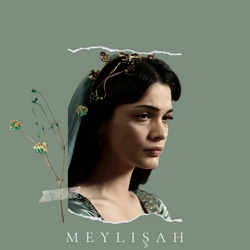

Meylişah Hatun foi a consorte favorita de Osman II — embora não tenha recebido o posto de Haseki — e mãe de Şehzade Ömer, o filho mais velho do sultão.
14 notes
·
View notes
Text

~Mahfiruze~
Mahfiruze was the mother of first - born son (Osman) of Sultan Ahmed I
She was choosen by Handan and Gevherhan Sultanas.
Altough, the mother of the second-born son, Mahpeyker Kösem recived the Haseki Sultan rank and thus Ahmed made clear that Kösem was the favorite consort, Mahfiruze didn't fell out of favor. It is possible that Mahfiruze gave birth to Şehzade Çihangir in 1609. And for sure she gave birth to şehzade Bayezid in 1612. Mahfiruze disappears from harem registers after Bayezid's birth. She possibly died due birthcomplications. Some historians suggest that she was alive during Osman's reign and died in 1629, but there is no proof that Mahfiruze was Valide Sultan.There was a rumor that Mahfiruze was beaten and exiled for irritating Kösem but it seems unlikely that a royal mother,the mother of the first-born prince would be treated so disrespectfull.The main problem of Osman II who ascended as a young boy was that he didn't have a valide who could advise him. During his reign, Osman's wetnurse ruled the harem! Even if the rumor was true, that Mahfiruze was exiled, Osman II as the current Sultan could always recall her back to the palace! Mahfiruze is burried in Eyüp Sultan Mosque and not in Ahmed's Complex, that also suggest that she died in 1612 because the complex was finished in 1616. In 1618, when Osman ascended the throne, he built a tomb for her.
youtube
12 notes
·
View notes
Text
Yes, it's time to talk about all the people Sultan Murad lost.
⏭️ Will do All the people Sultan Suleyman lost next.
And I will not mention his brother's death because those were not his fault. (Osman's and Mehmet's)
------------------------------------------------------------------------------
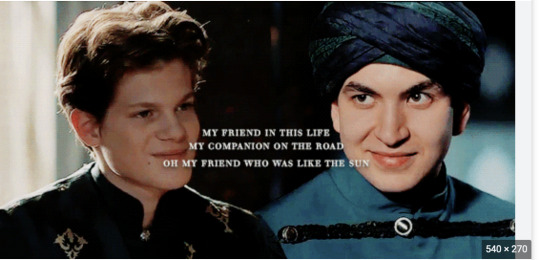
👦🏻Musa Çelebi, his best friend (and lover)
➡️He died in a rebellion and Murad could do nothing. Their story is heartbreaking.
❌Only death in this list is that definitely not Murad's fault but also probably the death Murad blames himself the most.
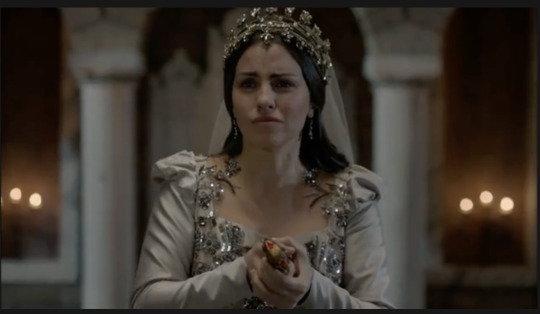
👸🏻Gevheran Sultan, his sister
➡️Murat first killed her husband and then forced her to marry his mother's secret lover. She committed suicide at her wedding.
✅Murat's fault, also can be Atike's fault, and also can be Silahtar's fault depending on where you look.
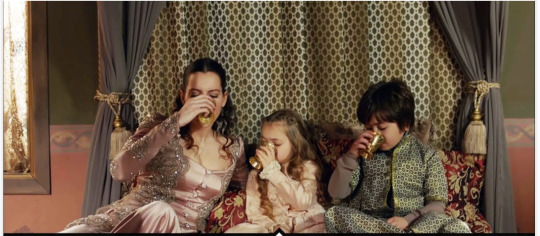
👸🏻 Ayşe Sultan, his wife number 1
➡️ She killed herself after finding out Murad had ordered her death. Murad decided to kill her because she was the reason Farya lost her baby and the giant fire in the capitol.
✅Definitely Murad's fault. Maybe Farya can share a little of the blame since she informed Ayşe of her pending demise but definitely 95 percent Murad's fault.
➕
👸🏻🤴🏼Murad's son and daughter
➡️Ayşe poisoned them.
✅Still Murad's fault. Ayşe was desperate and I think she thought Murad would harm their son in the future and since she wasn't going to be able to protect them, she chose to take her children with her. This wasn't an act of selfishness or desire to get even with Murad. She just wanted to protect them from Murad's cruel side.
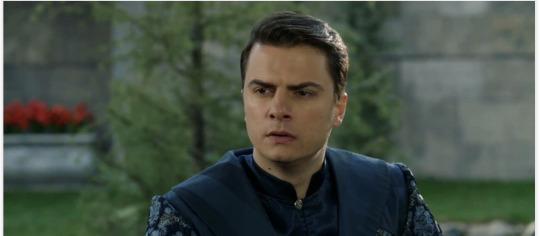
🤴🏻Şehzade Beyazıd, his brother
➡️He got executed on Murad's orders in the palace, in his home.
✅❌Again partly Murad's fault, partly Gulbahar Sultan's fault. Murad shouldn't have made him kill his lover, shouldn't have made him feel like he could kill him any second. Gulbahar on the other hand made everything possible for her son to die. If she had just waited, Beyazıd would have ascended to the throne regardless.
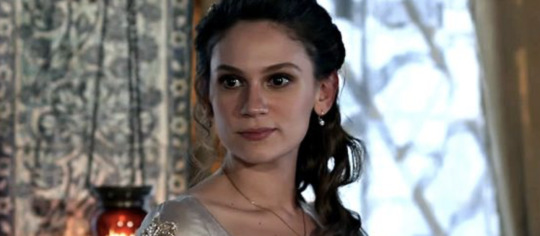
👸🏻Farya, wife number 2
➡️Kosem killed her before this though Murad had tried to kill her but couldn't, after finding out she was pregnant.
❌✅Kosem's fault, but Murad had already tried to kill her... sooo I don't know?
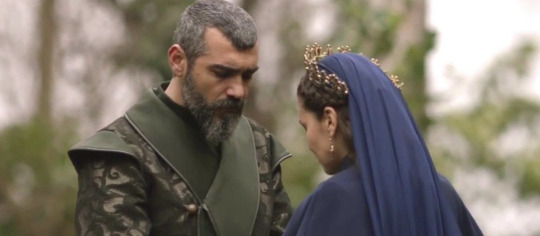
👦🏻Silahtar Mustafa, his best friend
➡️Kosem killed her.
❌Don't like him. Don't care. Wasn't Murad's fault.
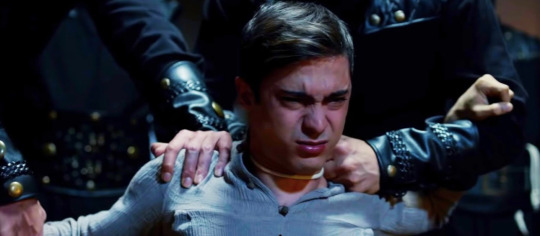
🤴🏻Şehzade Kasım, his brother
➡️Murad ordered his death after Kosem tried to dethrone him and give his empire Kasım
✅❌ Kosem's ambitions. Murad's unreasonable hatred towards his mother. Both are equally guilty.
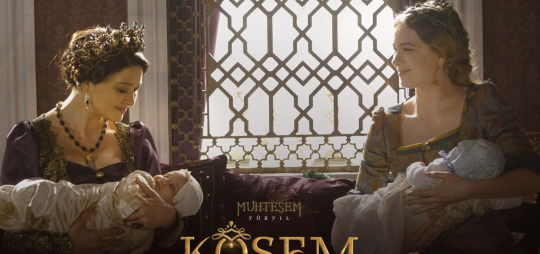
🤴🏻🤴🏻Şehzade Selim and Şehzade Suleyman, his sons
➡️Murad's sons. They died due to force contamination by the plague.
✅It's Murad's fault. For not killing Gulbahar, for killing Beyazıt, for failing to keep their mother Farya alive and for not listening to Kosem.
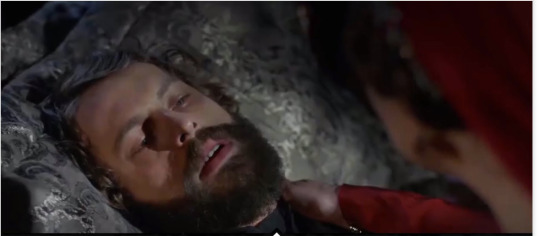
👑 Sultan Murad, himself
➡️He died because he refused to listen to his mother, he was cruel and didn't listen to doctors and kept drinking. Also, all the deaths I mentioned above *might have* affected him and his health.
✅Definitly his fault
#magnificent century#magnificent century kosem#mc: kosem#kosem sultan#muhtesem yuzil kosem#muhtesem yuzyil#sultan murad#ayse sultan#kösem sultan#magnificent century kösem#sehzade bayezid
9 notes
·
View notes
Text
…SEVGİLİM İHANET…
Kelimelerin hastalıkları varsa eğer,”ihanet” mutlaka cüzzamlı olmakla suçlanmıştır.Oysa, soluğumuz kadar yakındır da biz onu bambaşka yerlerde ve kendimizden çok uzakta bilmeyi yeğleriz.İhanet hayatımızın ta kendisidir,dikkatli bakın, göreceksiniz.
İhanet daima iki uçlu.Gerçekleşmesi için bir muhatap gerekli ve bu yanıyla aşka benziyor.Bu yüzden değil mi ki ihaneti yaşayanlar,büyük aşkları yaşayanlar kadar ünlü ve daima çift isimle anılıyor bu öyküler.Habil ile Kabil söz gelimi.Leylâ ile Mecnun .En trajik olanı galiba İsa’nın son akşam yemeği ve İşte insan. Hıristiyan batıda her şey bu çok eski ihanetin etrafında döner ve çarmıhlar artık daima omuzlardadır.Sezar’ı asıl öldüren yediği hançerden daha çok Brütüs’ün,olmaması gerektiğine inandığı bir yerdeki mevcudiyetini görmesidir.Genç Osman için de öyle. Evvelâ sarayının kapısını emanet ettiği bostancılar ardına kadar açarlar bâb-ı hümayunu ihtilâlcilere,ardından o kadar güvenerek sığındığı Yeniçeriler emanete ihanet ederek alıverirler “Osman Çelebi”nin canını.Gerçi Yeniçeriler çok çaba sarf etmişlerdir ama artık kaldırılmış bulunan 28.ortanın adı yoklamalarda her okunuşunda yeri göğü inleterek yok olsun diye bağırmaları bile alınlarındaki bu ihanet lekesini temizlemeye yetmez. Esasen Genç Osman’a ihanet edenler arasında kısacık saltanatında tutulan güneş ve yüzlerce yıldan beri ilk kez donan Boğaz sularının da kendine özgü bir yeri olması gerek.Halk, ölümüne o kadar çok ağlayacağı padişahın ,sağlığında uğursuzluğuna inanmıştır.
Osmanlı’yı kuşkusuz çok az şey Kırım Hanı Murad Giray’ın Viyana kapılarındaki ihaneti kadar yaralamıştır.Üstelik Giray, bilerek yapmaktadır:Bilirim,dine sığmaz,ihanettir cümlesini sarf etmiş olması bile tutmakla yükümlü bulunduğu köprüyü müttefik kuvvetlere hoyratça açmasına mani olamaz.
Osmanlı’yı çokça meşgul eden eşine az rastlanır bir başka ihanet de Abdülmecid’in dördüncü ikbali Serefraz’ın yarattığı ve neredeyse bir milli gaileye dönüşen “aile faciası”dır. Fazlasıyla kıskanan ve kıskanılan bir kadın olan Serefraz, Dolmabahçe’den ayrılarak Yıldız Kasrı’na yerleşmiştir. Sık sık kasra gelen Abdülmecid’i içeri almakta çok cömert davranmayan dördüncü ikbal üstelik Küçük Fesli lâkabıyla tanınan bir Ermeni delikanlısının aşkına karşılık vermektedir.Hanedana mensup bir kadının açık ihaneti özellikle sarayı çok rahatsız eder.Ailesi tarafından Adalar’a kaçırılan delikanlının Sultan’a duyduğu aşk yüzünden tekrar İstanbul’a dönmesi ise saray mensupları tarafından öldürülmesinden başkaca bir sonuç vermez.Ailesi delikanlının İngiliz,Fransız ve Rus sefaretlerine baş vurarak takibat açılmasını isterler ve mesele İstanbul’u uzun zaman meşgul eder.Bazı kaynaklarda rastlamamıza rağmen bu hikâye oldukça inanılmaz.Asıl inanılmaz olansa bunca hadiseden sonra Serefraz’ın hâlâ padişah nezdindeki kıymetini muhafaza edebilmiş olması.
İhanet Osmanlı hanedanından hiç uzak değil.Bütün saraylar kadar Osmanlı sarayının da içinde.Yavuz’un kızı Fatma Sultan, bir kişiye düştüm ki beni kelb hesabına saymaz…bir hil‘atini görmedim,bir kaftanını giymedim.Dul avret gibi dirilürüm cümleleriyle evliliğinin ve düşlerinin ihanetine uğradığını ,çok sade bir lisanla ve döneminde her hangi bir genç kadının yapabileceği tek şeyi yaparak babasına aktarır.
Fakat muhteşem ihanetleriyle Kanuni yine -bir Osmanlı trajedisi varsa- baş roldedir.İlki elbet Şehzade Mustafa etrafında biçimlenir.Nizam-ı âlem uğruna şehzade katline izin veren kanunname bir yana,Mustafa’nın katli esnasında Kanuni’nin başını çadır aralığından uzattığı rivayeti ve bunu böyle de gösteren minyatür asıl ihaneti vurgulamakta.Ve ihanete tepkiyi.Az rastlanır bir düğünle Kanuni’nin resmi eşi olmayı çok kolay başaran ve vak’anüvislere bakılırsa nikâhtan sonra muhteşem kocasının ihanetine hiç uğramayan Hürrem’in Kanuni’yi bu ihanete hazırlaması çok kolay olmamış olmalı.Ama aynı şey sadece ecel celâlilerinin aldığı Mustafa Han ile sınırlı kalmayacak ve Hürrem, isminin başındaki makbul sıfatı kısa zamanda maktul’e dönüveren İbrahim Paşa’nın öyküsüne de girecektir. Makbul İbrahim Paşa , damatların başka kadınlarla düşüp kalkması katiyen yasaklandığı halde ;Yavuz’un kızı,Kanuni’nin kardeşi gibi bir sultan olan eşine ,Muhsine adlı bir kadınla ihanet etmektedir.Kuşku yok ki,İbrahim’in sonunun hazırlanmasında bu ihanetin payı hiçti.O, seher semasında çokça ışık saçmaya başlayan bir yıldızcıktı ve muhteşem bir güneşin kaçınılmaz ihanetine uğradı.Her türlü ihtimale açık bir ikbal yolunu ayakları dibine sererken daha başlangıçta Kanuni , İbrahim Paşa’ya , kendi sağlığında bir zarar gelmeyeceğine dair yemin etmişti.Bu yüzden katline karar vermesi çok kolay olmadı.Kanuni hakkında bir eser sahibi bulunan Fairfax Downey’e bakılırsa, uyuyan kimse hayatta değildir,uyku ölüme benzer ve insan o esnada hayatla kendisini bağlayan her hangi bir bağdan müberra bulunur mealindeki ayetden hareketle İbrahim
Paşa, Kanuni uyuduğu bir esnada maktul edildi.Fakat Paşa kim bilir kendisini ölmeden önce öldüren bu ihanete uğradığı esnada,Kanuni’nin uyumakta olduğu yan taraftaki odasında aniden uyandığı ve onu Hürrem Sultan’ın teskin ettiği rivayet olunur.
Edebiyatımız,tümüyle sanat ve edebiyat ihanet güzellemeleriyle doludur.En masumları Suat ve Necip’tir kuşkusuz ve Eylül bir ihanetin öyküsü. Duygularda da kalsa ihanetin kirinin mutlak temizlenmesi gereği Mehmed Rauf’u da etkiler.Romanın sonu Mehmed Rauf’un yapabileceği en uygun şekilde gelirken ve o kadar acıdığımız ve anladığımız dahası masumiyetine tanıklık edebileceğimiz Suat ve Necib’in günahını bu dünyada ateş temizlerken ,biz galiba hangisinin daha az dürüst olduğunu düşünmek zorunda kalırız : Romanın kuralarının mı,yaşamın kuralarının mı?
İhanetin ism-i faili sabıkalı bir kelime:Hain.Ama ihanetin ism-i faili hain ise eğer bütün o Lady Makbetler,Fintenler,Therese Raquınler, Bihterler’le birlikte bizzat yazarına göre göre içindeki mücadele herhangi bir meydan savaşında bir komutanın verdiği mücadeleden daha az olmayan Vadideki Zambak’ın Henriette’i ,Halide Edib’in Seviye Talip’i,Suat ve Necip ,oyunu toplumun kurallarına göre değil de kendi vicdanının ve erdeminin kurallarına göre oynamaya kalktığı için kaybeden Anna hep hainlerdir.Bu iki grubu ayıran ve onları gözümüzde bayağı veya masum kılan şeyse,yazarın bakış açısından başka bir şey değildir çoğu kez.Çünkü yazar,bütün düşüncelerimizi yönlendirebilecek bir büyücüdür.
Anna Karenina romanı karlı bir günde ve bir tren istasyonunda başlar.Bir başka karlı günde ve bir başka tren istasyonunda biter.İlkinde Anna,toplumun saygıdeğer bulduğu sadık bir eş,iyi bir annedir.Ve çok güzel bir kadın.Sonunda ise, aristokrat Rus toplumunun gizlice yaşanmasını rahatlıkla onayladığı yasak aşkını, meşru zemine çekemediği noktada , gizlice yaşamayı onuruna yediremeyerek açıkça yaşadığı için dışlanmış bir kadın.Artık iyi bir eş ve iyi bir anne değildir.Ama yine çok güzel bir kadın.Kendi güzelliğinin ihanetine uğrayacağı yılların hızla yaklaştığının farkında,usulca bırakır kendisini bir trenin tekerlekleri altına.Çünkü güzellik ihanet eder ve doğrudur kadının iki kez öldüğü.
Tolstoy,Anna Karenina’yı içindeki Anna Karenina’nın aynı olarak anlatabilmiş midir,bilinmez ama kaç yazar,kaç şair dil’in kendisine ihanetinden müşteki değildir?Kuşkusuz hiç. Hamid’in yakalayamadığı,ancak susmak veya pek karanlık bir şey söylemek olarak tanımladığı bir şiir,dilin ihanetine karşı geliştirilmiş bir müdafaa maskesi değil midir?Akif,ağlarım ağlatamam hissederim söyleyemem /dili yok kalbimin ondan ne kadar bizarım mısralarını ağlarken , Orhan Veli anlatamıyorum çığlığıyla anlatmaya çalışırken hep bu ihanetten müşteki değil midirler?Haşim şiiri anlaşılmaktan ziyade duyulmak zeminine çekerken,Ahmet Cemil şiir lisanını baştan ayağa bir insan,adeta konuşan bir ruh olarak tanımlarken aynı şeyi söylemiyorlar mı?Şiire kadar uzanmaya gerek yok.Derdimiz hep anlatamamak ve anlaşılamamak değil mi?Ben öyle demek istemedim cümlesi ile başlayan boğucu koridorların aşılması ne kadar zordur.Ardından gelen böyle demek istedimler de daha fazla ifadeye muktedir değildir. Üstelik bize hep ihanet eden dile rağmen bizi en iyi anlayacak olanı beklemiyor muyuz sürekli?Ve bizi en iyi anlayacak olanı bulduğumuzu zannettiğimiz her defasında yeni bir ihanete hoş geldin demiyor muyuz?Ve o her defasında yanlış kişi çıkmıyor mu?
Gerçek şu ki ,kalplerin dili olsaydı,dilin ihanetine uğramadan birbirlerine daha çok şey anlatabilirlerdi.Belki Cocteau’nün bahsettiği gibi bir şairi yanlış anladığımız için sevmekten vazgeçebilmemiz için de, Paul Eluard’ın görüşünün gerçek olması ve bizim artık kelimelere ihtiyaç kalmadan şiiri kafa ile okuyabileceğimiz günlerin gelmesi gerekli.Ama galiba o zaman da ne şiir kalır,ne nesir.
Sevgilim dil’in ihaneti,sevgilim şiir çünkü.
Ve sevgilim ihanet.
Sevgilim ihanet,çünkü hayatın kendisi bir ihanete dönüşür yüzümüzde ter damlaları belirdiğinde ve ayaklarımız suya değdiğinde.Bir de bakarız ki birileri,bizimle hiç ilgisi olmayan birileri bizim için enine boyuna ölçerek hem de, bir oyun hazırlamışlar ve al demişler,yaşa,işte senin hayatın.Sesleri ne kadar ılık ve inandırıcıdır oysa.Ne kadar güven verici.Ve biz ayaklarımız suya değecek kadar kısa geçen bir zaman içinde,hayatımızın ihanetine uğradığımızı fark ederek çığlıklar atmaya başlarız.Bu çığlıklarımızı pek de ciddiye almayarak ,yaşıyor ve tahammül edebiliyorsan senindir biçimindeki imalarını dostun ciddiye ne kadar alsak da,içimizdeki fotoğrafın dışımızdakinden farklı olduğu gerçeği hiç bir zaman değişmez.
Önce anılarımız ihanet eder bize,teker teker bırakıp giderler.Her ihanet bir terk ediştir çünkü.Üstelik ne kadar kendisi olarak kalacağını vaad etse de ne dönen aynı kalır,ne bekleyen.Öyleyse her gidiş bir ihanettir,her ihanet bir gidiş.
Baharla yorumlamaya kalkarız hayatı kimileri.Baharın kendisi de bütün ihtişamına rağmen koskoca bir ihanete dönüşür.Beşir Ayvazoğlu,her ne kadar çiçeklerin faniliği onların bizi mutlu eden güzelliklerinin garantisidir derse de,felsefi boyutta sağlam duran bu görüş, saltanatını ilân eden duygu olunca,o kadar ikna edici değildir.Çok kısa bir zamana sığdırılmış bir gül fırtınası,siz her ne kadar bir güle dönüşebilmeyi mantıksızca ve çılgınca bekleseniz de geçer gider.Mehtabı ve yıldızı da terkisine alarak.Kent git gide küçülür,yok olur.Geriye ne bahar kalır,ne gül,ne şiir.
Hafızamızın ihaneti de hiç zor değildir.En gerektiği anda dilimizin ucuna geliveren bir iki mısraın sislendiği veya tümüyle silindiği anlar ne acıdır.Veya her anını ve görüntüsünü hıfzetmeye,zihnimize kazımaya çalışsak da çok sevgili bir beraberlikten geriye kopuk cümleler ve görüntülerle salt bir duygu yumağından başka bir şey kalmaz.Üstelik o duygu yumağı da yeteri kadar açık değildir ve bir gün,ve bir gün silikleşen bir hayali de beraberine alarak sessiz sedasız çekip gider.
Hayret bile edemeyiz.
Yüzümüzün ve bedenimizin ihaneti hiç gecikmez.Her gün aynada gördüğümüz o çehrenin on yıl önceki biz olduğuna kimi inandırabiliriz?Dahası on yıl sonraki biz de bu değilizdir.Hiç gecikmez yüzümüzün ve bedenimizin ihaneti. Cemil Meriç’i gözleri terkeder,Beethoven’i kulakları. Son ihaneti kalbimiz yapar.Bir gün,hiç nedeni yokken bir gün usulca duruverir.Oysa kul yapısı bir cihaz hâlâ ses vermektedir veya şairin dediği gibi kolumuzdaki saat hâlâ işlemektedir .
Üstelik sevgilimiz de ihanet eder bize.Aniden,belki sebepsiz ve ne kolayca başka ve tanınmayacak bir şeye dönüşür.Artık o gitmiştir ve yok olmuştur.Padişahlar cariye çıkar , cariyeler halayık.Oysa biz ona gelebilmek için ne çok şey terk etmişizdir.Bir başka deyişle ne çok ihanet etmişizdir.
Sonra aşkın kendisi .Uğrunda karşılıklı ihanetlere kalkıştığımız ve katlandığımız aşkın kendisi.Hiç zor değildir ihaneti.Hiç bitmeyeceğini sandığımız,bizi var ettiğine inandığımız,Cemil Meriç’in ifadesiyle gizlideki dörtte üçümüzü görünür kılan aşk hiç sebepsiz,hiç ölmeyeceğini sandığımız bir yerde bizi arkamızdan bıçaklar ve usulca çekip gider. Birden gözümüzdeki perde kalkar,bütün çirkinlikler ve çıplaklıklar görünür,cennetten kovuluruz.Utanç kalır geriye,pişmanlık.Oysa aşk pişman olmamak diye tanımlanır.Şarkılar ihanet eder,eskisi kadar güzel değildirler.Şiirler yere yığılır birden,kanatları kopar gecenin.
Rüzgâr küçülür,yağmur fazlalık gelir bize.
Ve ışık söner.Geride kalan her şey sarıya boyanır .
Ama ihanetin bir rengi varsa mutlak gri olmalıdır.
Dostların ihaneti kadar hiç bir şey acı değildir.Ve nedense hep de böyle olur ve biz ,bize en son ihanet edeceğini sandığımız kişinin ihanetine uğrarız ansızın.Artık bir parça Sezar olmuşuzdur.Bir yıldızlar kalır geriye,onlar da gözyaşlarının sıcaklığını duyamayacağımız kadar uzaktadırlar.Oturup hem kendimiz hem yıldızlar için ağlarız,göz yaşlarımız tükenir.Dostların ihaneti kadar hiç bir şey acı değildir çünkü.Hocam Kaya Bilgegil’in kim bilir sigarasına hitaben söyleyebilmek için kaç dostunun ihanetine uğraması gerektiği şu mısrada olduğu gibi:
Zehir de olsan insanların ihaneti kadar acı değilsin.
Fakat en korkuncu,en dayanılmazı kendi kendimize ihanetimizdir.Kendi kendimizi hiç terk etmeyeceğimizi sanırken bir gün bakarız ki tükenmiş,yok olmuşuz.Eski doğrular terk edilen doğrulardır.Yerine koyulacak yeni doğrularımız varsa bir hainizdir,o da yoksa sadece bir hiç.Oysa yanı başımızda hiç dönmeyenler,dönse de tükenmeyenler bahar goncaları gibi boy vermektedirler ve kentin sokakları sabahın saat sıfır dörtlerinde yeni şarkılara ve şiirlere gebedir.Uyku bizi kollarına çeker.
Uyku.
Sevgilim uyku.
CÜMLE KAPISI - NAZAN BEKİROĞLU

2 notes
·
View notes
Text
》 Mahfiruze Sultan 《
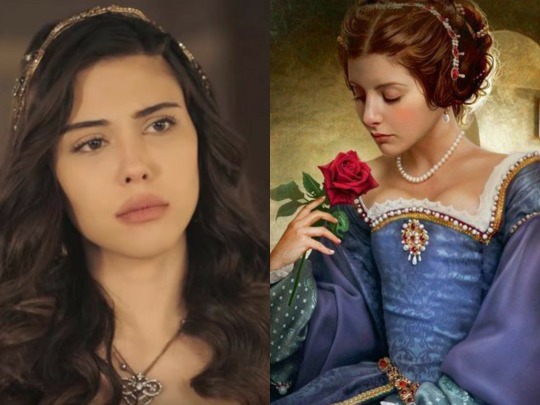
Gerçek adı : Hansuret-Bikeç
Doğum tarihi ve yer : 1590 / Kafkasya
( Labe nehri civarında )
Ölüm tarihi ve yer : 28.10.1620
Babası : Prens Alkas Çerkassky
Annesi : Feride Hatun
Ağabeyi : Janhot Bey
Kardeşi : Şahincah Hatun, Ali Bey.
Eşi : 1 Ahmed
Evlilik tarihi : 8 Ocak 1604
Çocukları : 2 Osman
Hatice Sultan
Hanzade Sultan
Şehzade Bayezid
Şehzade Hüseyin
Şehzade Süleyman
Zeynep Sultan
~~~~~~~~~~~~~~~~~~~~~~~~~~~~~~
Real name: Hansuret-Bikec
Date and place of birth : 1590 / Caucasus
( around the river Labe )
Date and place of death : 28.10.1620
Father: Prince Alkas Cherkassky
Mother: Feride Hatun
Older Brother: Janhot Bey
Brother: Şahincah Hatun, Ali Bey.
Spouse: 1 Ahmed
Marriage date : 8 January 1604
Children: 2 Osmans
Hatice Sultan
Hanzade Sultan
Sehzade Bayezid
Sehzade Hussein
Sehzade Suleiman
Zeynep Sultan
~~~~~~~~~~~~~~~~~~~~~~~~~~~~~~
Tarihçi Peçevi, Mahfiruz'u Şehzade Mehmed'in annesi olarak gösterir. Ancak o zaman Şehzade Mehmed'in doğum tarihi 8 Mart 1605 değil 3 Ağustos 1605 olmalıdır. Ayrıca 1611 sefir raporuna göre Mahfiruze Sultan Übeyde adında bir şehzade doğurmuştur. Aynı yıl Şehzade Übeyde vefat etmiştir.
Historian Peçevi indicates Mahfiruz as the mother of Şehzade Mehmed. But then, Prince Mehmed's birth date should have been August 3, 1605, not March 8, 1605. In addition, based on the ambassador report of 1611, Mahfiruze Sultan gave birth to a prince named Übeyde. Şehzade Übeyde passed away in the same year.
~~~~~~~~~~~~~~~~~~~~~~~~~~~~~~
Mahfiruze Sultan beyaz tenli ve uzun boyluydu. Beline kadar uzun kumral rengli saçlara sahibti. Gözleri firuze rengindeydi.
Mahfiruze Sultan was white-skinned and tall. She had long auburn hair up to her waist. His eyes were the color of turquoise.
#mahfiruze sultan#magnificent century#kosem sultan#muhteşem yüzyıl#muhtesem yuzil kosem#mahidevran sultan#circassian#ottoman empire
18 notes
·
View notes
Text


This dark blue and golden kaftan was first worn by Şehzade Osman (later Sultan Osman II) in the twenty-second episode of the first season of Magnificent Century: Kösem. It is worn again by Sultan Murad IV during a flashback in the twenty-sixth episode of the second season.
#Muhteşem Yüzyıl: Kösem#Magnificent Century Kösem#Magnificent Century Kosem#period drama#costume drama#historical drama#Osman II#Şehzade Osman#Sehzade Osman#Şehzade Osman (Son of Mahfiruze)#Murad IV#Şehzade Murad#Sehzade Murad#Şehzade Murad (Son of Kösem)#reused costumes#recycled costumes
9 notes
·
View notes
Text

( oktay çubuk, cis male, he/him, 26) ** ♔ announcing EZRAK OSMAN, THE ŞEHZADE OF THE OTTOMAN EMPIRE ! in a recent portrait they seem to resemble OKTAY ÇUBUK. it is a miracle that HE survived the last five years and for that reason, they are AGAINST the kingdoms working together. reflecting on them now, they remind me of FANGS NEVER COMPLETELY FILED DOWN, MOVEMENT IN THE CORNER OF YOUR VISION, A HEART THAT BLEEDS TOO EASILY & THE BRAMBLES PLANTED AROUND IT. (ariel, he/him or ze/hir, 25, cst)
basics.
full name: ezrak nihat osman
nicknames: n/a
age: 26 years old
gender: cis male
pronouns: he/him
orientation: pansexual
religion: islam (sunni)
language(s): turkish, arabic, persian, russian, english, polish
status: betrothed
bio.
you’re the eldest. the first boy, too. from the moment you draw your first breath, you’re of utmost importance, and no one misses a chance to remind you. what happens to a kid like that? what becomes of the boy wonder when he becomes a man? he turns into you. confident, too much so. self aggrandizing in a way that lets everyone know this isn’t for show. you don’t just think you’re amazing. you know you are. you know you’re smart, and funny, and good looking. you want for nothing. at your heart, you do care. you love your mother, and your siblings, and even the haseki sultan and her children, who you’d always seen as your siblings just the same, are dear to you. you have the adoration of your people, the pride and love of your mother, the loyalty of your siblings, and--
your father is another matter. you know he complains. you’re immature, irresponsible, and in short, embarrassing. as you are you don’t deserve higher titles, and you know that’s all he sees. he doesn’t see how hard you work, how far your ambitions stretch. he sees only the bitter, ugly parts of you, and all you’ve ever wanted is for him to know there is more. it feels childish, and stupid. what kind of leader begs for his father’s approval? certainly not you. you push his opinions out of your mind. the throne will be yours, most definitely. you have faith not only in your own abilities, but in your few true loyalties.
admittedly, the one crack in your armor you allow is the loss of your sister. defne is the youngest, and in the way only siblings understand this makes her dear to you. you still remember the day she was born, seemingly impossibly small as her mother held her close. it matters little to you that you are of the kadin and she is of the haseki sultan. when she’s young, you always try to smile for her. a real, bright thing to remind her, constantly, the way she should always be looked upon, as something precious. when plague grips your family you are terrified, but do your best to conceal it. your station requires a certain decorum even in anguish. but when defne dies, the only one to do so, things change. light doesn’t reach your eyes now when you smile. it feels more fang than teeth. the world feels crueler. of all of you, she had been the kindest, the most innocent. she was only a child. you stop trying to make sense of it.
you do not lose yourself in your grief. you tell yourself this, so it must be true. you dance, you fraternize, you do what you can to numb the discord brewing beneath the surface. still, you stumble. you stick to your prayers, but they feel wooden now. more like a recitation than an exaltation. you push and push and push, daring someone, anyone at all, to snap. all your life you’ve been told you’re the future and you’re going to be a fine sultan and favor and fortune shine upon you. you itch to be human. you yearn for someone to drive a blade into your heel and take you down. invulnerability burns. it hurts.
2 notes
·
View notes
Photo
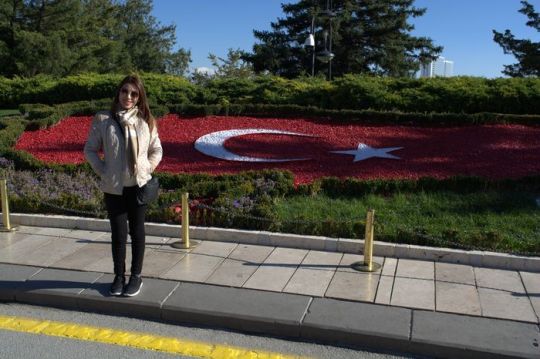
Abdülmecid Efendi Şeyh Sivasi
On altıncı asrın sonlarıyla on yedinci asrın birinci yarısında, İstanbul’un en büyük şöhretlerinden biri olan bir Halveti şeyhidir. Halveti tarikatının Şemsiye kolunun kurucusu olan Sivaslı Şemseddin Efendi’nin kardeşi, “Tuhfetül Mülûk” ve “Ziyaiyyei Cami” şaritû şeyhi Muharrem Efendi’nin oğlu ve meşhur şeyh Abdülahad Nurini’nin dayısı ve mürşididir. 1563 (H. 971) tarihinde Zile’de doğdu, ilk tahsilini babasından aldı ve yedi yaşında Kur’an’ı hafız oldu. Tahsil, sülük ve terbiyesini amcası Şemseddin Efendi’den tamamladı. Devrinin ünlü şeyhinin yanında 1596 (H. 1005) tarihinde Eğri seferine katıldı ve orada ölen Pirizade Veli Efendi’nin yerine Zile’deki Halveti dergahına şeyh oldu. 1604 (H. 1013) tarihinde Sivas’taki dergahın ikinci postnişini ve amcası Receb Efendi’nin ölümü üzerine de Sivas’taki Şemsî dergahına şeyh oldu.
İlim ve irfan yolundaki ününü duyan Üçüncü Mehmed tarafından bir hatt-ı hümayun ile İstanbul’a davet edildi; büyük şehirde ilk vaazını Ayasofya Camii’nde verdi ve kısa bir süre de bu mâbedin civarında bir evde oturdu. Daha sonra, kendisine intisap eden ve zamanın Reisülküttabı Lâ’li Efendi tarafından hediye edilen Eyyub Nişancaaındaki bahçeye yerleşti. Kızlarağası Mehmed Ağa’nın Çarşamba’da yaptırdığı Mehmed Ağa zaviyesine şeyh oldu Private Tour Istanbul.
Şeyhülislâm Sun’ullah Efendi tarafından cami haline getirilen Atpazarındaki Hüsambey Mescidi’ne de Cuma vaizi tayin edildi. İstanbul halkının vaazlarına gösterdiği büyük ilgi üzerine birkaç ay sonra Şehzade Camii’ne, bir süre sonra da Sultan Selim Camii’ne Cuma vaizi oldu. Sultan Selim civarında bir Sivaslı dergahı ile mescid yaptırdı. Bugün bu mescidin yeri Darüşşefakânın avlusuna katılmış bulunmaktadır; yıkılmış olan dergahtan da duvarı yarı çökmüş bir mezarlık kalmıştır. Sultanahmet Camii yapılırken “Temel şeyhi” olan Abdülmecid Efendi, temel taşı konulurken dua ettiği büyük mabedin halka açıldığı gün de ilk Cuma vaazını vermiş ve ölünceye kadar bu vazife üzerinde kalmıştır.
Üçüncü Mehmed, Birinci Ahmed, Birinci Mustafa, Genç Osman ve Dördüncü Murad devirlerinde ilim ve irfanı, fazilet ve kemaliyle büyük bir nüfuz ve hürmete mazhar olan bu din ve tasavvuf âlimi, mühim işlerde padişah ve devlet erkânı tarafından fikir ve reyine başvurulan bir sima idi. Kara yazıcı ve Uzun bölükbaşı isyanlarının bastırılmasında hükümete faydalı tavsiyelerde bulunmuştu. Dördüncü Murad’a Bağdat’ın İranlılardan geri alınacağını önceden bildiren kişi olmuş, padişah sefere çıkarken de Hazreti Ömer’in kılıcını beline kuşatmıştı.
Yüksek bir medeni cesaret sahibi idi; gördüğü yolsuzlukları açıkça söylemekten çekinmezdi. Birinci Ahmed’e sunduğu manzum bir şikâyetnamede, bu genç hükümdara memleketin ahval ve idaresinin bozukluğunu acı ve sert bir dille anlatmış, başarı için kendisine adalet ve meşveret tavsiye etmişti. Aşağıdaki satırlar, bu manzumeden alınmış beyitlerdir:
“Şeh-hü, mülkiyyeti kirişli, münşiba adem mi Bunu, dinli devlete layık nedir, ey fulûri, kinim.”
0 notes
Text
Denizli’nin konuştuğu düğün

Denizli siyasetinin önde gelen isimlerinden Gelecek Partisi İl Başkanı Aykut Yıldırım ve Fazilet Yıldırım çiftinin kızları güzellik uzmanı Vildan ile Karaca Pastanelerinin sahibi Nazan Türk ve Bekir Türk çiftinin oğulları işletmeci Berkay Türk dünya evine girdi.
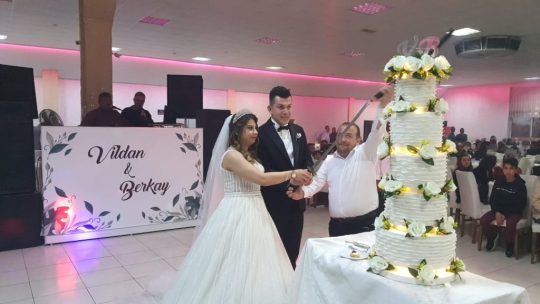
Denizli’de Gelecek Partisi İl Başkanı Aykut Yıldırım’ı kızı güzellik uzmanı Vildan Yıldırım ile Karaca Pastanelerinin sahibi işletmeci Berkay Türk, düzenlenen düğün töreniyle dünya evine girdi. Şehzade Düğün Salonundaki düğünde Vildan ve Berkay çiftinin nikâhlarını Merkezefendi Belediye Başkanı Şeniz Doğan kıydı. Vildan ve Berkay Türk çiftinin düğününe Gelecek Partisi Genel Başkan Yardımcısı Ümit Yardım, Gelecek Partisi Genel Başkan Yardımcısı Mustafa Gözel, CHP İl Başkanı Ali Osman Horzum, Deva Partisi İl Başkanı Bekir Kırar, Babadağ Belediye Başkanı Ali Atlı, Bozkurt Belediye Başkanı Birsen Çelik, Honaz Belediye Başkanı Yüksel Kepenek, önceki Denizli Belediye Başkanı Ali Aygören, Gelecek Partisi Kütahya İl Başkanı Serdar Sinan, Gelecek Partisi Uşak İl Başkanı Safiye Ayyıldız, Bakkallar Odası Başkanı Erol Tüzen, CHP Milletvekili Adayı Şeref Arpacı, CHP Milletvekili Adayı Ayşe Hazer, CHP Milletvekili Adayı Adil Demir ve CHP Milletvekili Adayı Sema Sinkil Ün katıldı. Vildan ve Berkay çiftinin nikah şahitliğini ise Necdet Yılmaz, Yasemin Karasu, Hasan Hüseyin Kaba, Zeliha Erdoğan, Gelecek Partisi Genel Başkan Yardımcısı Ümit Yardım, Gelecek Partisi Genel Başkan Yardımcısı Mustafa Gözel, CHP İl Başkanı Ali Osman Horzum, Deva Partisi İl Başkanı Bekir Kırar, Babadağ Belediye Başkanı Ali Atlı, Bozkurt Belediye Başkanı Birsen Çelik, Honaz Belediye Başkanı Yüksel Kepenek, önceki Denizli Belediye Başkanı Ali Aygören, Gelecek Partisi Kütahya İl Başkanı Serdar Sinan, Gelecek Partisi Uşak İl Başkanı Safiye Ayyıldız, Bakkallar Odası Başkanı Erol Tüzen, CHP Milletvekili Adayı Şeref Arpacı, CHP Milletvekili Adayı Ayşe Hazer, CHP Milletvekili Adayı Adil Demir ve CHP Milletvekili Adayı Sema Sinkil Ün yaptı. Düğün eğlencesi gece geç saatlere kadar devam etti.
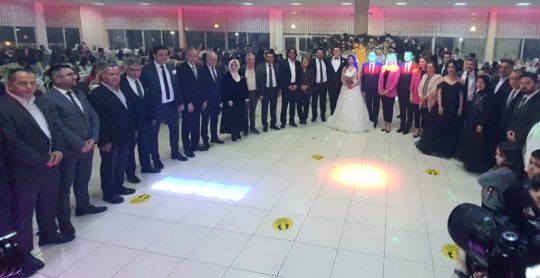
Read the full article
0 notes
Photo

Değerli dostlar, Milletimiz, özellikle CHP döneminde her türlü zülüm ve insan hakları ihlalleri ile muhatap olmuştur. Fransa'da bir şehzade ölmüştür. Kimse ilgilenmez Fransa hükümeti Türkiye'ye haber verir. Türkiye'de hiç bir belediye bir mezarlık yeri vermediği için; Cenazesi Manş denizine atılır. Abdülhamid Han'ın Oğlu Ömer Faruk Efendi. [ "Her türlü siyasî haktan mahrum olarak vatanda yaşamama müsaade edin. Bogaziçi'nde balikçilik yapmaya raziyim" diye. Cemal Gürsel'e bile mektup yazdi. Sonunda kabul edilmeyecegini anlayinca, o sirada Hanedan hakkinda bir yazi yazmış bulunan rahmetli Osman Yüksel Serdengeçti'ye bir mektup yazarak "Bizi vatana kabul etmeyeceklerinden emin oldum. Bir zarfin içine Allah rizasi için bir avuç vatan toprağı koyun da hiç olmazsa kabrime konulsun." diyecek kadar vatan hasreti içinde kivranmiş bir insandi. Rabbimiz, bu değerli insana gani gani rahmet eylesin. Mekanı Cennet olsun. Amin inşaAllah. En içten dileklerimle selam 👋 ve dua ile 👐 https://www.instagram.com/p/Cmza_IDqpsR/?igshid=NGJjMDIxMWI=
0 notes